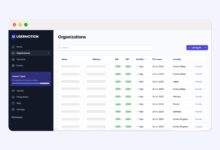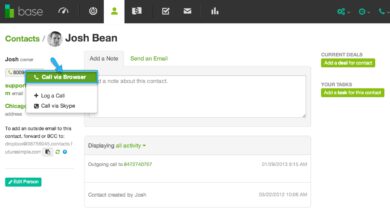Cloud based crm systems examples: Top 7 Cloud Based CRM Systems Examples: Ultimate Guide 2024
In today’s fast-paced digital world, businesses are turning to cloud based CRM systems examples to streamline sales, boost customer engagement, and scale operations effortlessly. Let’s explore the top platforms transforming customer relationship management.
What Are Cloud Based CRM Systems?

Cloud based CRM systems are software solutions hosted on remote servers, accessible via the internet. Unlike traditional on-premise CRM software, these systems eliminate the need for physical hardware, offering businesses scalable, cost-effective, and secure ways to manage customer interactions, sales pipelines, and marketing campaigns from anywhere in the world.
How Cloud CRM Differs from On-Premise CRM
The fundamental difference lies in deployment. On-premise CRM systems require businesses to install software on local servers, manage updates manually, and handle data security internally. This often leads to high upfront costs, limited scalability, and dependency on IT teams for maintenance.
In contrast, cloud based CRM systems examples operate on a subscription model, with automatic updates, built-in security, and seamless integration with other cloud tools. According to Gartner, over 85% of CRM deployments in 2023 were cloud-based, highlighting a clear industry shift.
- Lower initial investment
- Remote access from any device
- Automatic software updates
- Scalability based on business needs
Key Benefits of Cloud CRM for Businesses
Adopting a cloud based CRM system offers transformative advantages. First, it enhances collaboration by allowing teams across departments—sales, marketing, and customer service—to access real-time customer data. This unified view improves decision-making and personalization.
Second, cloud CRM systems reduce IT overhead. Vendors handle server maintenance, data backups, and security patches, freeing internal teams to focus on strategic initiatives. Third, integration with tools like email, calendars, and marketing automation platforms is seamless, enabling end-to-end workflow automation.
“The cloud has democratized access to enterprise-grade CRM tools, allowing even small businesses to compete with larger players.” — Salesforce CEO Marc Benioff
Top 7 Cloud Based CRM Systems Examples in 2024
With a growing number of options, choosing the right cloud based CRM systems examples can be overwhelming. Below is a curated list of the seven most powerful, widely adopted, and feature-rich platforms dominating the market in 2024.
1. Salesforce Sales Cloud
Salesforce remains the undisputed leader in the CRM space. Its Sales Cloud is a comprehensive cloud based CRM system designed for businesses of all sizes. It offers robust sales automation, lead and opportunity management, forecasting tools, and AI-powered insights through Einstein Analytics.
Key features include customizable dashboards, mobile access, and a vast AppExchange marketplace with over 3,000 integrations. Salesforce is ideal for enterprises seeking deep customization and scalability. Pricing starts at $25/user/month, making it accessible for small teams while supporting complex global operations.
Learn more at Salesforce Official Site.
2. HubSpot CRM
HubSpot CRM stands out for its user-friendly interface and free tier, making it one of the most popular cloud based CRM systems examples for startups and small businesses. Despite being free, it offers essential features like contact management, email tracking, deal pipelines, and task automation.
Paid tiers unlock advanced marketing, sales, and service hubs, enabling full-funnel customer journey management. HubSpot’s strength lies in its seamless integration between marketing and sales tools, allowing businesses to track leads from first touchpoint to conversion.
Its drag-and-drop workflow builder and native email integration with Gmail and Outlook enhance productivity. Visit HubSpot CRM for details.
3. Zoho CRM
Zoho CRM is a powerful, affordable cloud based CRM system that caters to small and mid-sized businesses. It offers AI-driven sales assistant (Zia), workflow automation, multichannel communication, and deep customization options.
One of its standout features is Zoho’s ecosystem integration—users can connect CRM with Zoho Books, Campaigns, Desk, and other tools for a unified business platform. It supports multi-currency and multi-language setups, ideal for global teams.
Zoho CRM also provides excellent mobile functionality and offline access. Pricing starts at $14/user/month, making it one of the most cost-effective cloud based CRM systems examples. Explore more at Zoho CRM.
4. Microsoft Dynamics 365 Sales
Microsoft Dynamics 365 Sales is a robust cloud based CRM system tightly integrated with the Microsoft 365 suite. It’s ideal for organizations already using Outlook, Teams, and Excel, as it syncs seamlessly with these tools.
It offers AI-driven insights, lead scoring, sales forecasting, and relationship analytics. Its strength lies in enterprise-grade security, compliance, and deep integration with Power BI for advanced reporting.
Dynamics 365 is particularly favored by large organizations in regulated industries like finance and healthcare. Pricing starts at $65/user/month, reflecting its premium positioning. Learn more at Microsoft Dynamics 365.
5. Pipedrive
Pipedrive is a sales-focused cloud based CRM system designed for teams that prioritize pipeline visibility and deal management. Its visual sales pipeline interface makes it easy to track deals at every stage.
It offers automation for repetitive tasks, email integration, activity reminders, and real-time reporting. Pipedrive is especially popular among small sales teams and startups due to its intuitive design and fast onboarding.
The platform also supports integrations with over 300 tools via Zapier and native connectors. Pricing starts at $14.90/user/month. Visit Pipedrive for more.
6. Freshsales (by Freshworks)
Freshsales is a modern cloud based CRM system that combines AI, automation, and intuitive design. It offers a built-in phone, email, and chat system, enabling sales teams to engage prospects without switching apps.
Its AI-powered lead scoring and sentiment analysis help prioritize high-value leads. Freshsales also provides visual deal timelines and workflow automation, reducing manual data entry.
It integrates well with Gmail, Outlook, Slack, and WhatsApp. Pricing starts at $15/user/month. Check it out at Freshsales.
7. Insightly
Insightly is a cloud based CRM system that emphasizes project and customer relationship management. It’s ideal for businesses managing complex sales cycles involving multiple stakeholders and deliverables.
It offers project tracking, task automation, contact management, and pipeline visualization. Its strength lies in linking CRM data with project milestones, ensuring alignment between sales and delivery teams.
Insightly integrates with G Suite, Office 365, Mailchimp, and QuickBooks. Pricing starts at $29/user/month. Learn more at Insightly.
Key Features to Look for in Cloud Based CRM Systems Examples
When evaluating cloud based CRM systems examples, certain features are non-negotiable for long-term success. These include scalability, integration capabilities, mobile access, automation, and reporting.
Scalability and Customization
A good CRM should grow with your business. Look for platforms that allow you to add users, modules, and custom fields without performance degradation. Salesforce and Zoho CRM excel here, offering extensive customization through drag-and-drop builders and API access.
Customization ensures the CRM adapts to your sales process, not the other way around. For example, you can create custom deal stages, fields, and workflows that mirror your unique sales funnel.
Integration with Other Tools
No CRM operates in isolation. The best cloud based CRM systems examples integrate seamlessly with email, calendars, marketing automation, ERP, and customer support tools.
HubSpot CRM integrates natively with Facebook Ads, Google Ads, and LinkedIn. Pipedrive connects with Mailchimp, Slack, and QuickBooks. Salesforce offers over 3,000 apps on AppExchange, including Stripe, DocuSign, and Shopify.
Integration reduces data silos and enhances productivity. For instance, syncing CRM with your email allows automatic logging of customer interactions, saving hours of manual entry.
Automation and Workflow Management
Automation is a game-changer. It eliminates repetitive tasks like data entry, follow-up emails, and task assignments. Most cloud based CRM systems examples offer workflow automation.
For example, when a lead is added, the CRM can automatically assign it to a sales rep, send a welcome email, and schedule a follow-up task. Zoho CRM’s Flow engine and HubSpot’s workflows make this easy to set up without coding.
Automation not only saves time but also ensures consistency in customer engagement, reducing the risk of missed opportunities.
How to Choose the Right Cloud Based CRM System for Your Business
Selecting the right cloud based CRM systems examples requires a strategic approach. It’s not just about features—it’s about alignment with your business goals, team size, industry, and budget.
Assess Your Business Needs
Start by identifying your pain points. Are you struggling with lead tracking? Poor sales forecasting? Lack of customer insights? Define your primary objectives—whether it’s improving conversion rates, enhancing customer service, or streamlining marketing campaigns.
For example, a real estate agency might prioritize contact management and appointment scheduling, while a SaaS company may need lead scoring and integration with billing software.
Consider Team Size and Structure
Small teams benefit from simple, intuitive CRMs like HubSpot or Pipedrive. Large enterprises with complex processes may require robust platforms like Salesforce or Microsoft Dynamics 365.
Also, consider departmental needs. Sales teams need pipeline tracking, marketing teams need campaign analytics, and support teams need ticketing systems. A unified CRM that serves all departments is ideal.
cloud based crm systems examples – Cloud based crm systems examples menjadi aspek penting yang dibahas di sini.
Evaluate Total Cost of Ownership
While many cloud based CRM systems examples offer low entry prices, hidden costs can add up. These include add-on modules, user licenses, training, and integration fees.
For instance, HubSpot’s free CRM is powerful, but advanced features require paid tiers. Salesforce offers great scalability but can become expensive with add-ons. Always calculate the total cost over 1-3 years before deciding.
Implementation Best Practices for Cloud Based CRM Systems
Even the best cloud based CRM systems examples fail without proper implementation. A poorly executed rollout leads to low user adoption, data inaccuracies, and wasted investment.
Plan Your Data Migration Strategy
Start by cleaning your existing data. Remove duplicates, outdated contacts, and incomplete records. Then, map your current data fields to the new CRM’s structure.
Most platforms offer import tools for CSV files or API-based migration. Salesforce and Zoho provide data migration wizards, while HubSpot offers guided onboarding. Always back up your data before migration.
Train Your Team Effectively
User adoption is critical. Provide hands-on training sessions, video tutorials, and quick-reference guides. Assign CRM champions within teams to support peers.
HubSpot and Salesforce offer free certification programs. Zoho provides extensive documentation and webinars. Regular training ensures teams use the CRM to its full potential.
Monitor Usage and Optimize
After launch, track key metrics like login rates, data entry completeness, and pipeline updates. Use built-in analytics to identify bottlenecks.
For example, if sales reps aren’t logging calls, investigate why—maybe the process is too cumbersome. Continuously refine workflows, fields, and automation rules to improve efficiency.
Security and Data Privacy in Cloud Based CRM Systems
Security is a top concern when adopting cloud based CRM systems examples. Storing sensitive customer data in the cloud requires robust protection against breaches, unauthorized access, and data loss.
Data Encryption and Compliance
Reputable CRM vendors use end-to-end encryption for data at rest and in transit. They comply with global standards like GDPR, HIPAA, and SOC 2.
Salesforce, for example, offers advanced encryption, multi-factor authentication, and audit trails. Microsoft Dynamics 365 integrates with Azure’s security framework, providing enterprise-level protection.
User Access Controls
Implement role-based access to ensure employees only see data relevant to their role. For instance, a sales rep shouldn’t access financial records, and a marketer shouldn’t view sensitive support tickets.
Most cloud based CRM systems examples allow granular permission settings. You can restrict access to specific records, fields, or modules based on user roles.
Regular Audits and Backups
Choose a CRM that performs regular automated backups and allows you to export data at any time. This ensures business continuity in case of system failure or vendor lock-in.
HubSpot and Zoho offer daily backups and data export tools. Salesforce provides a Data Export Service that delivers all your data in CSV format monthly.
Future Trends in Cloud Based CRM Systems
The landscape of cloud based CRM systems examples is evolving rapidly, driven by AI, automation, and customer experience demands. Staying ahead of trends ensures your CRM remains a strategic asset.
AI and Predictive Analytics
AI is transforming CRM by enabling predictive lead scoring, sentiment analysis, and next-best-action recommendations. Salesforce Einstein and Zia from Zoho analyze historical data to forecast sales trends and recommend outreach strategies.
In 2024, expect more AI-driven personalization, such as automated email content generation and chatbot-powered customer service.
Integration with Communication Platforms
CRMs are becoming communication hubs. Freshsales and HubSpot now offer built-in calling, video meetings, and WhatsApp integration. This reduces app switching and centralizes customer interactions.
Microsoft Teams and Slack integrations allow real-time collaboration within the CRM, enhancing team productivity.
Mobile-First CRM Experiences
With remote work on the rise, mobile CRM access is no longer optional. Leading cloud based CRM systems examples offer robust mobile apps with offline capabilities.
Sales reps can update deals, log calls, and access customer history from their smartphones. Pipedrive and Zoho CRM lead in mobile usability, offering near-desktop functionality on mobile devices.
Real-World Use Cases of Cloud Based CRM Systems Examples
Understanding how businesses use cloud based CRM systems examples in practice can provide valuable insights for your own implementation.
Small Business: E-Commerce Store
An online fashion retailer uses HubSpot CRM to manage customer inquiries, track order status, and automate follow-up emails. By integrating with Shopify, they sync customer data and purchase history, enabling personalized marketing campaigns.
They use deal pipelines to track high-value customers and automate birthday discount emails, increasing repeat purchases by 25%.
Mid-Sized Company: SaaS Provider
A B2B SaaS company uses Zoho CRM to manage its sales funnel. Leads from webinars and trials are automatically scored using AI. High-scoring leads are routed to sales reps with personalized email sequences.
Integration with Zoho Books ensures seamless invoicing and subscription management. The CRM also tracks customer health scores, helping reduce churn.
Enterprise: Financial Services Firm
A multinational bank uses Salesforce to manage client relationships across regions. With strict compliance requirements, they leverage Salesforce’s audit trails and role-based access.
AI-powered insights help relationship managers identify cross-selling opportunities. The CRM integrates with internal risk assessment tools, ensuring regulatory compliance.
What are cloud based CRM systems examples?
Cloud based CRM systems examples include platforms like Salesforce, HubSpot CRM, Zoho CRM, Microsoft Dynamics 365, Pipedrive, Freshsales, and Insightly. These are web-based tools that help businesses manage customer interactions, sales pipelines, and marketing efforts from anywhere.
Why should I use a cloud based CRM?
Cloud based CRM systems offer flexibility, lower costs, automatic updates, remote access, and seamless integration with other tools. They improve team collaboration, enhance customer insights, and scale with your business.
Are cloud CRM systems secure?
Yes, reputable cloud based CRM systems examples use advanced encryption, compliance certifications (like GDPR and HIPAA), and role-based access controls to protect data. Vendors like Salesforce and Microsoft invest heavily in cybersecurity.
Which CRM is best for small businesses?
HubSpot CRM and Zoho CRM are excellent choices for small businesses due to their affordability, ease of use, and free tiers. Pipedrive is also popular for sales-focused teams.
How much do cloud CRM systems cost?
Prices vary: HubSpot CRM starts free, Zoho CRM at $14/user/month, Pipedrive at $14.90, Salesforce at $25, and Microsoft Dynamics 365 at $65. Costs depend on features, users, and add-ons.
Choosing the right cloud based CRM systems examples can transform how your business engages with customers. From Salesforce’s enterprise power to HubSpot’s simplicity, the options are vast. Focus on your needs, budget, and long-term goals. With proper implementation and continuous optimization, a cloud CRM becomes more than software—it becomes the backbone of customer-centric growth.
cloud based crm systems examples – Cloud based crm systems examples menjadi aspek penting yang dibahas di sini.
Further Reading:







